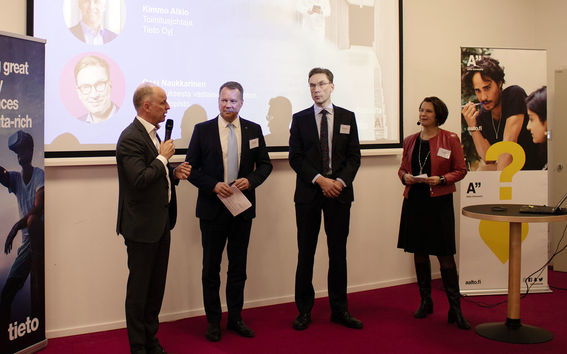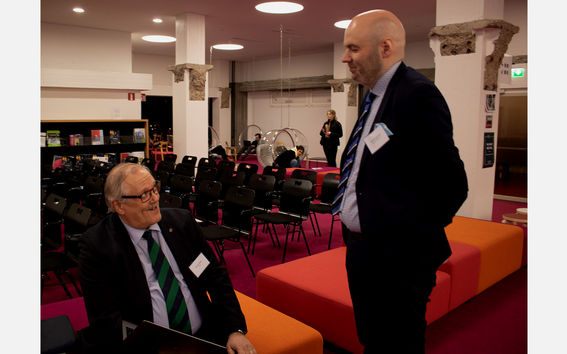Artificial intelligence helps to detect rare diseases and risk factors for child protection

Data is a fast-growing resource and artificial intelligence has a key role to play in its use.
‘Artificial intelligence is not a separate component, but an integral part of the development of all sectors. High-quality primary research is a prerequisite for Finland to be an independent forerunner in artificial intelligence, and to develop artificial intelligence suited to its needs and values,’ said Aalto University Vice President Ossi Naukkarinen at a joint event between Aalto University, the City of Espoo and Tieto. At the event, discussions were held on how artificial intelligence could act as an enabler for better public services, especially in healthcare and social services.
According to Aalto University’s Emeritus Professor Kimmo Kaski, Finland has an international advantage.
‘We have access to a unique set of data, thanks to the national healthcare system, biobanks, personal identity numbers and a genetically distinct population, as well as close and open collaboration between the various operators,’ said Kaski, who is actively involved in the activities of the Finnish Center for Artificial Intelligence FCAI.
Artificial intelligence can greatly assist doctors in detecting symptoms of illness. For example, retinopathy caused by diabetes can be detected in images taken from the eye, but screening for it is laborious and not cost-effective, even when done by an experienced ophthalmologist. It is estimated that one in ten Finns will develop diabetes, so automatic analysis of retina images that is based on artificial intelligence can be a great help for doctors. Artificial intelligence can also help to detect rare diseases that affect about 6% of Finns and result in about a tenth of the care costs of specialised medical care, and direct patients to receive treatment from doctors who specialise in these diseases.
In addition to healthcare, artificial intelligence can be a great help in improving social services. In an experiment conducted in Espoo, artificial intelligence found factors from anonymised data that predicted the likelihood of a child becoming the subject of a child protection case. This gave valuable information to social workers for better planning and targeting of preventative services.

Read more news

Aalto University is introducing ORCID’s Researcher Connect service
Aalto University is introducing ORCID's Researcher Connect service, which facilitates information transfer between researchers' ORCID profiles and the university's research information management system, ACRIS.
Nature of Process: Exhibition by the students of the ‘Personal Exploration’ Course
Nature of Process is a multi-material exhibition of 14 Master´s students of Aalto ARTSEden Telila's master's thesis contributed to Ramboll's geotechnical toolkit
Geoengineering alum Eden Telila helped Ramboll automate manual tasks.






